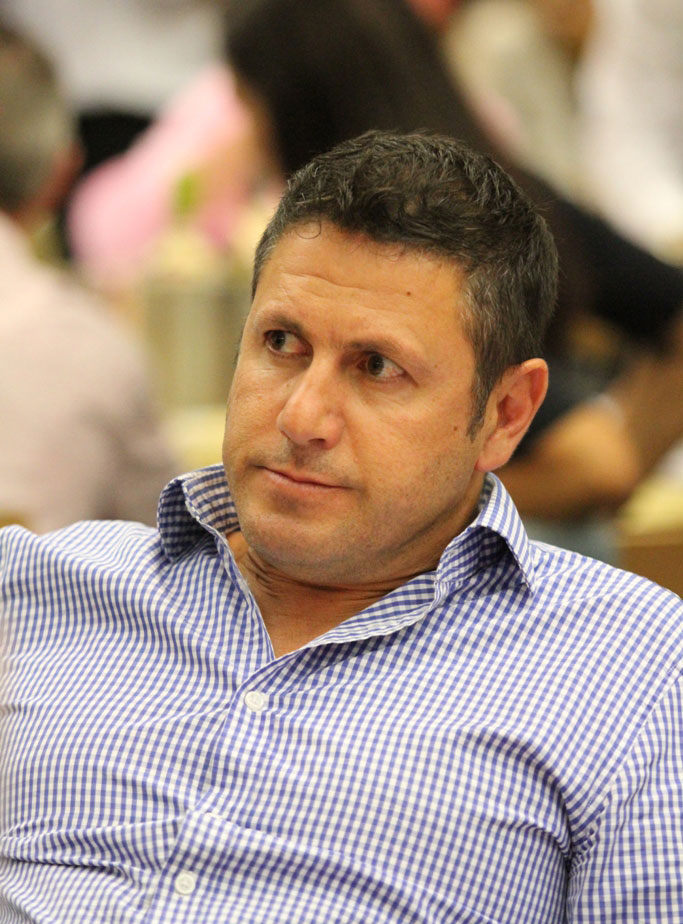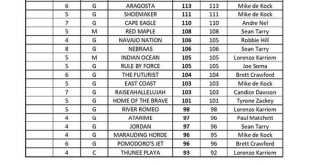Champion trainer Sean Tarry has reacted to criticism levelled at a number of trainers who have declined to reveal information about their first-time runners to the public – following a Gold Circle initiative launched, as reported, in the interest of transparency and to promote the welfare of the punter.
Most trainers have obliged recently with short comments about their newcomers, but there are a few who have not been keen to part with information, and others who have refused to comment, period.
In reference to the article Trainer ‘No Comments’ Raises Ire published on the Sporting Post website, in which trainers were given a score out of 10 for cooperating (nor not cooperating) with the initiative, Tarry said that the issue has now turned into “name-and-shame” game which is not only unnecessary, but also unfair to the individuals concerned.
Tarry said: “I’d like to give my opinion on this matter and I trust it will be taken in the positive spirit intended.”
Tarry emphasised that once info is given, info is gone.
He explained: “We pay tax and we’re not sure where our tax rands are applied. We give to charity and we can’t be sure where in the pool our contributions end up going. Information given by a trainer to an individual will always serve to benefit that individual first. I am not saying that the media who collect this information cannot be trusted – that’s not the issue at all.
“The point is, whomever compiles the information has first access, in theory, so the info will always remain the property of that person or a select few around him who can use it before it is disseminated to the public.
“Again, I am not suggesting dishonesty on behalf of the media, but let’s say, for example, that Tellytrack send out an interviewer to Randjesfontein who gets exclusive info on a first-timer in an interview with a trainer.
He or she says nothing to anyone, but while the interview clip is being prepared someone walks by the editing studio, hears the info and is now also in the know, in possession of information destined for dissemination to the public at large.
“Seriously, how would the public at large receive any exclusive information without someone else having been advantaged first? There are any number of scenarios like this that can affect the price of a first-time before the information reaches the public, or certain members of the public, the proportion who happens to be reading the info online or happens to be tuned in to Tellytrack at the time of dissemination.
Tarry also posed the question: “How would the public benefit from us giving opinions on horses we are in reality unable to assess with authority until they’ve competed in a race?“
It is not easy for any trainer to “label” a horse, Tarry said. He elaborated: “From time to time you’ll get stars like Horse Chestnut or Variety Club who have freakish talent and are few and far between. They are the rare ones a trainer would have full confidence in.
“As for lesser talents, more of them will get beat than win when they are expected to win. Some young horses show good work and disappoint when they get into a race; others show nothing and surprise you on the racetrack.
Some pull up with ailments or breathing problems undetected before the race, others race too green to compete.”
Tarry said that he followed a process when planning to bet: “Personally I never have a bet until I’ve seen the runners in the parade ring on the day of the race, and I’ve compared them to others on the canter-down.
“An example. A month ago we fancied End Game to win her first start at Turffontein, we also had Written in the race, unfancied. As things turned out End Game was beaten half a length by David Nieuwenhuizen’s 5-1 shot Hurricane Bertha in a nine-horse field. Written ran on so well she would probably have won in another stride! What would punters have said if I’d announced, on what we saw in work, that End Game was the fancied one, Written was unfancied and they ran the other way?”
Tarry said that, in his view, no professional or serious punters would ever splash out money on a “tip” from a trainer or a jockey. “Punters who sit and wait for info on first-timers are on a free trip to the poorhouse.
With no form exposed there is no way of comparing the runners in a race and also, the market for first-timers is small. How would any punter expect to get their bets on at the best price, whatever info they are in possession of?
“Betting opens sometimes half an hour before the first race, which makes it mostly impossible to claim a good price.
Punters with so- called info are able to take Opening Betting (OB) or Starting Price (SP) ahead of time, but chances are they will end up with the wrong odds most of the time as the betting market establishes itself.
“Betting on horses is a science of discipline that takes years of trial and error to master, and anyone with experience in racing will tell you that. What our punters need is more education, they need to study form, watch replays and be intimately involved with racing every day to be able to make a call on when to bet and when not to bet.”
Get a form book, go to the track and learn, Tarry advised punters. Look at all the variables and make your own form decisions.
He concluded: “By trying to force trainers to speak about first-timers the goal posts are being moved and punters could get hurt, rather than advantaged.
Trainers can be potentially embarrassed and castigated by a sometimes very immature betting public.”
“Personally I am always willing to help, to give pointers on my horses that have raced. I am also in favour of barrier trials for unraced horses which will give everyone an equal opportunity to compare young horses against each other on times recorded at the work track.
“But I think what we have here now is a situation that can turn sour and has been overblown in the media. If we could “rubber stamp” our first-timers this would be an easy game, we’ll just make money every time and we’d be able to eliminate training fees altogether!
“Let’s respect those trainers who decline to make comments, and who really have nothing to be ashamed of in exercising their right not to comment.”
– Turf Talk








